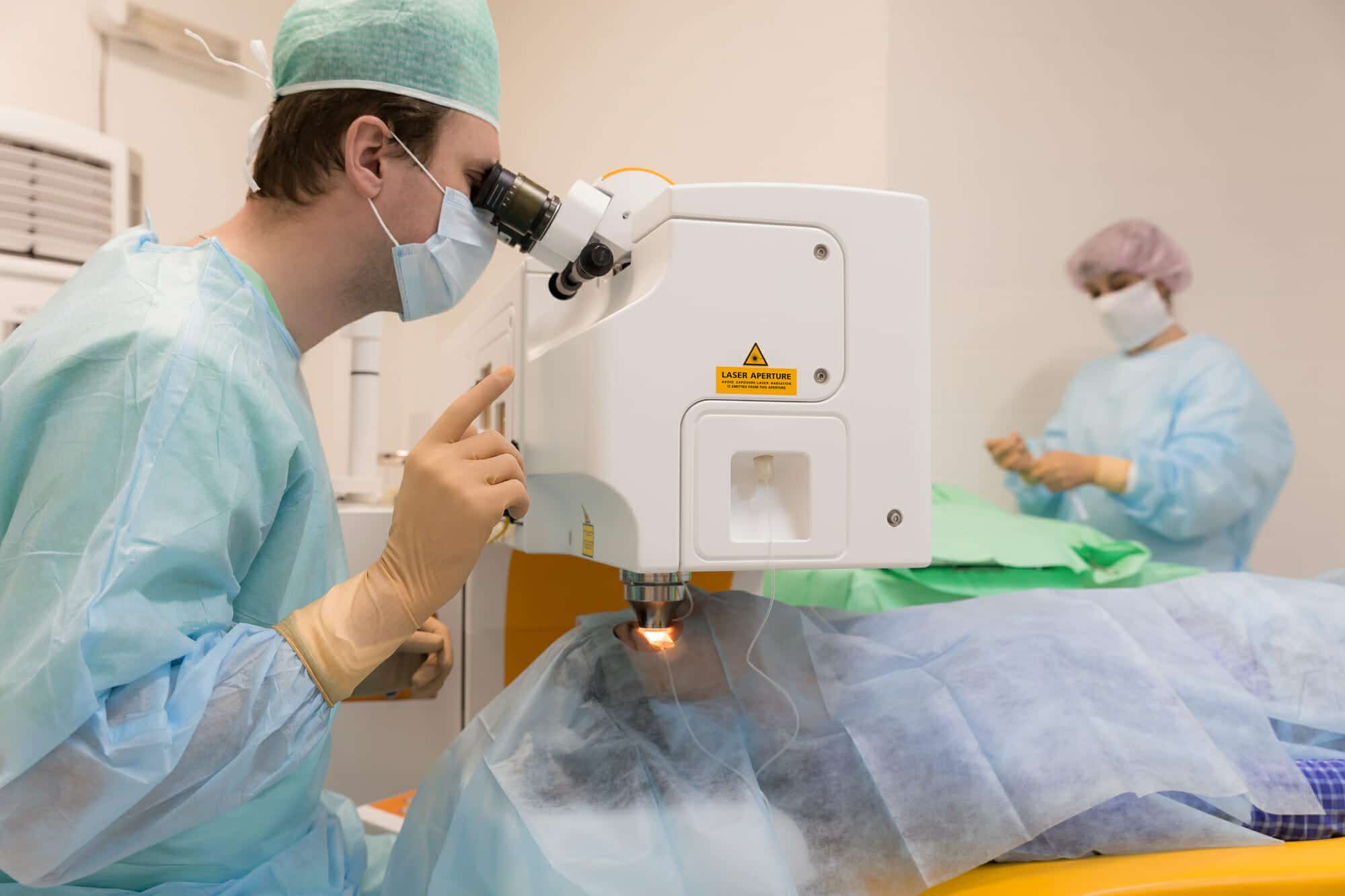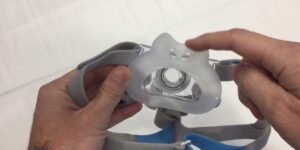While LASIK laser eye surgery is very successful, it is vital that you follow your doctor’s advice and do all possible to prepare for your procedure and recuperation. We’ve put up a collection of important ideas and information for preparing for and recovering from surgery lasik to help you get started.
Recommendations for lasik eye surgery preparation
Prepare for your laser vision correction treatment by taking proactive steps. This is one of the most effective ways to guarantee that your surgery lasik and recovery go as well as possible. There are a number of methods to prepare for your visit, fortunately.
Make plans to take time off from work.
Although LASIK laser eye surgery has minimal downtime, you should anticipate on missing work for a few days. While some individuals may return to work after surgery lasik in as little as 24 hours, others may need several days before their eyesight is clear enough to return to work. Your LASIK surgeon may advise you on how much time you should expect to miss from work during the treatment.
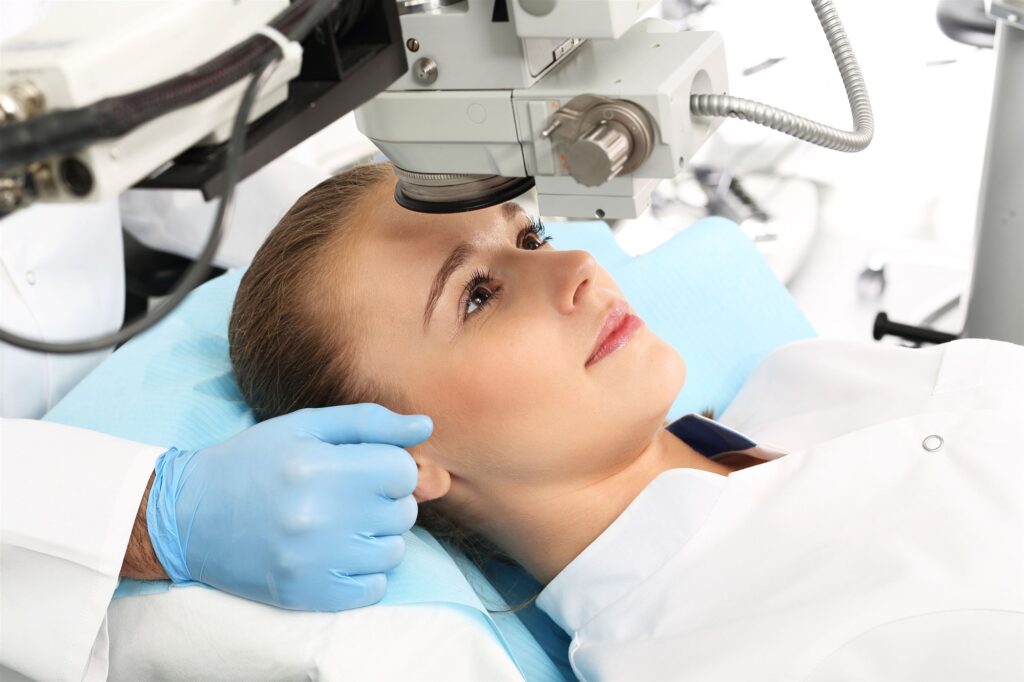
Returning to your home
After your LASIK procedure, you will be able to return home promptly, but you will not be able to drive until your LASIK surgeon gives you the green light. In an ideal scenario, a friend or family member should drive you home and stay with you until your eyesight improves gradually. Prepare for your visit by resolving this issue ahead of time.
Cosmetics aren’t allowed.
Your face should be completely makeup-free on the day of your surgery. You should also avoid using moisturizers and other similar products.
Carefully prepare your clothing.
Even if your LASIK surgery office is unlikely to resemble a runway, it is still a good idea to plan your attire ahead of time. For fear of blocking their eyesight, many patients are told not to wear anything that forces them to pull their hair tightly over their heads. Choose a button-down shirt wherever possible.
While LASIK laser eye surgery is incredibly successful, it is critical that you follow your doctor’s advise and do all you can to prepare for your treatment and recovery. To get you started, we’ve compiled a list of useful tips and information for preparing for and recovering from surgery lasik.
Suggestions for preparing for LASIK eye surgery
Take proactive efforts to prepare for your laser vision repair treatment. This is one of the most effective ways to guarantee that your surgery and recovery go as well as possible. There are various choices for preparation for your visit, fortunately.
Make arrangements to take time off work.
Although LASIK laser eye surgery has low downtime, you can expect to miss some work. While you may be able to return to work after laser eye surgery in as little as 24 hours, some may need several days before their vision is clear enough to work. Your LASIK surgeon will be able to tell you how much time you will be off of work during the procedure.
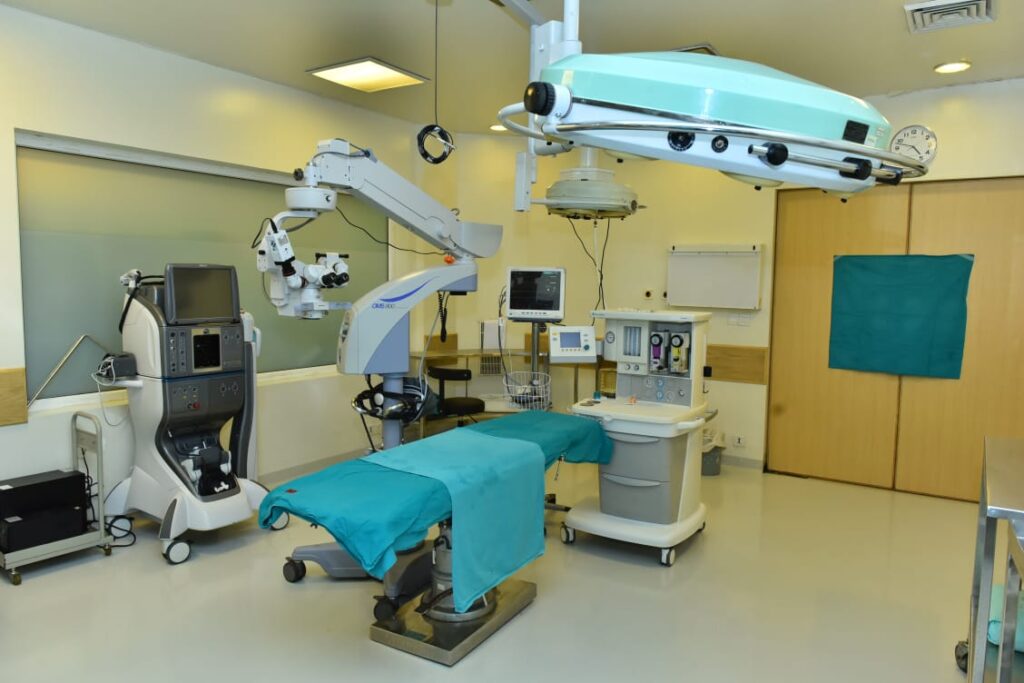
Returning to your home
You’ll be allowed to go home immediately after your surgery lasik, but you won’t be able to drive until your LASIK surgeon gives you the green light. In an ideal world, you’d have a friend or family member drive you home and remain with you until your vision considerably improves. Make a mental note of this before you go.
Cosmetics are prohibited.
On the day of your procedure, you should remove any makeup from your face. Moisturizers and other cosmetics should also be avoided.
Carefully prepare your clothing.
While your LASIK clinic is unlikely to resemble a runway, dressing accordingly is always a good idea. This is because many patients are instructed not to wear anything that makes them pull their hair firmly over their heads for fear of obstructing their vision. If at all feasible, wear a button-down shirt.
Suggestions for recovering after LASIK eye surgery
Here’s our best advice for a quick and painless recovery after LASIK surgery.
Make an effort not to touch your eyes.
While it’s natural for your eyes to feel itchy and unpleasant following LASIK surgery, you should avoid touching them since this might let germs to enter and infect your eyes. To prevent accidentally touching their eyes, some individuals prefer to sleep with a mask or goggles on.
Snooze for a while.
You should avoid any activity that requires extended high degrees of attention for the first 24 hours following your LASIK operation, such as reading or using a computer. We propose that you take advantage of every chance to relax since this is when our bodies recover the fastest.
Any drug should be taken exactly as prescribed.
You may be given eye drops to use after your LASIK laser eye surgery. These components help the body repair and generate the greatest outcomes. To get the most out of your laser eye surgery, make sure you take these medications at the times and doses prescribed by your LASIK eye surgery specialist.
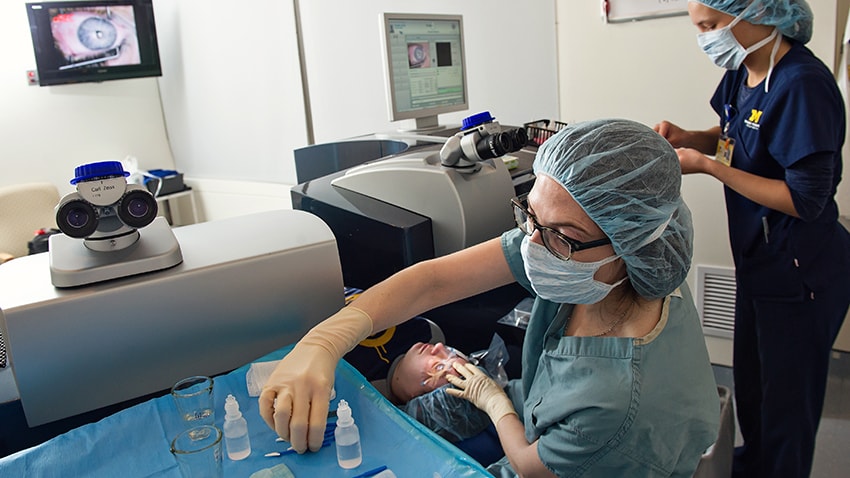
Sports should be avoided at all costs.
Whether you favor contact or solo sports, you should take a break from this activity. This is because even minor injuries may have an adverse effect on your eyes and the result of your LASIK eye surgery treatment. Even while swimming with goggles, this is true. Only resume your sport after your eye doctor has given you the green light.
Pay attention to your surgeon’s instructions.
As with everything medical, it’s critical that you follow your surgeon’s instructions to the letter. They are dedicated to assisting you in achieving the greatest eyesight possible. Do not be hesitant to seek for clarification if you are unclear about anything.
Contact lens users may find LASIK surgery preparation particularly difficult. Prior to the LASIK treatment, you will be recommended not to use contact lenses. The amount of time you must be away from them is determined on their composition. If you use soft lenses, you must take them out 5 to 7 days before your pre-operative exam and procedure. If toric lenses are used to cure astigmatism, they must be removed for ten to fourteen days.
During your first consultation, you will be told how long you must refrain from wearing other kinds of specialist lenses before surgery. Many people are puzzled as to why contacts must be removed before to LASIK eye surgery. That is an excellent question! Contact lenses may alter the curvature of the cornea, the eye’s front surface, which is crucial for LASIK eye surgery calculations. When you come in for your first consultation, inquire about how long you should go without contacts before LASIK surgery.
Why Is It Necessary to Remove Contact Lenses Before LASIK Surgery?
Is it possible to use contact lenses before LASIK surgery? In a nutshell, the answer is no. After your consultation, you should wait until your dilated pre-op exam and surgery to use contact lenses. This will return your cornea to its original form. Bacteria may be found in contact lenses, regardless of how carefully they are cared for. Another reason to avoid using contact lenses before LASIK eye surgery is that this bacteria may raise the risk of infection.
After laser eye surgery, can I use contact lenses?
The answer is generally no throughout the postoperative phase. They dehydrate you and may include microorganisms that slow your recuperation. The objective is that after you’ve fully healed, you won’t need them anymore. If you do, you should be able to wear them most of the time without incident. You’ll need a new prescription as well as a new fitting, however.
Is wearing glasses important before LASIK eye surgery?
Is it essential to wear glasses after LASIK eye surgery if you previously did not use contacts? Your prescription and the amount to which you depend on corrective lenses will determine this. It may be difficult to give up contacts before your LASIK eye surgery appointment if you have a high prescription. However, in order to function properly, you must not use contact lenses in the weeks leading up to your treatment. Make sure you obtain new glasses if you need them.
